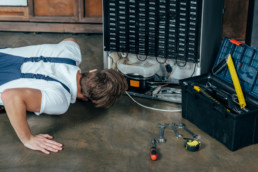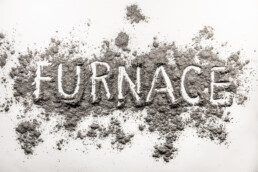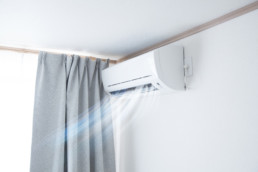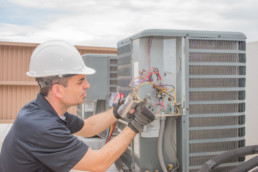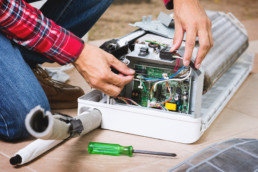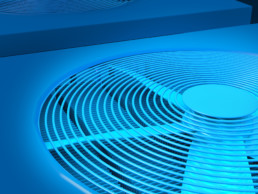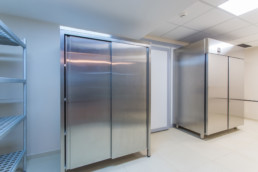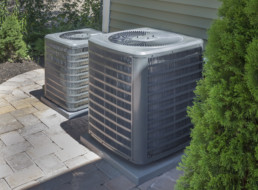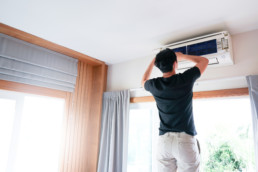3 Tips for Hiring an Appliance Repair Service
Appliances power everything we use in our home. From the air conditioning and heating unit to the furnace, and everything in between, our lives simply cannot function without these everyday appliances to keep us functioning and happy in our homes. That's why if an appliance is down, you'll want to take care of it with appliance repair services as soon as possible.
With that said, the market is chocked full of professional contractors who claim to have the experience you need to fix your problems. But which one is the right choice for your needs?
No need to fret. This article will help you go through the list of pros to find the one that's perfect for your home. Keep reading to find out!
1. Make Sure to Check Their Qualifications
Most people looking for appliance services will pick the first name that pops up on their Google search, but that's usually not the best way to go. Before hastily making an appointment, you need to have a look at the qualifications of that contractor to make sure they have what it takes.
Take a look into the company's background to find out what they're capable of. Have they gone through the correct training regiment? What sort of qualifications tests have they passed? What repair services do they offer? You'll want to have answers to these questions so you have a better idea of what you're getting yourself into.
2. Make Sure They’re Insured
One of the worst things you could do is hire a company that isn't insured. Unfortunately, an alarming amount of people make this mistake.
If a contractor isn't insured and they cause damage to your property, you only have one of two options: Take them to court (which could end up costing a lot more than the job itself) or pay for the damages out of your own pocket. Neither of these options are very attractive, which is why you want to make sure your potential contractor is insured.
3. Check Their Reputation
The longer a company has been around, the more time they've had to build a good reputation. You want to make sure your potential pick has the best rep in the local sector.
The easiest way to check this is by reading reviews. Most reviews are done by those who've had that contractor's services done to their home, making them reliable sources to get the information you need.
Get the Best Appliance Repair Services for Your Home
Now you know how to select the right professional for your appliance repair needs, you shouldn't have a problem taking care of your home's appliance repairs. However, if you need services done fast and done right, few contractors can make the cut — and none of them do it like us.
At A1 Refrigeration and Air Conditioning, we've given services to thousands of Texan clients and have been leaders in the industry for years. We provide heating air conditioning and heating maintenance and repairs, as well as refrigeration services and great rates on HVAC products.
Ready to get your home together? Take a look around our site to see what else we have to offer, or give us a call to schedule your appointment today. Let's get your appliances up and running again!
Does Your Furnace Smell? Here's What It Means
Have you noticed a smell from heater usage? Sometimes, heater smells are normal. Other times, they can serve as symptoms of deeper problems within your HVAC system. These might even develop into problems that cause extensive damage to your home.
They may put you and your loved ones at risk.
So, you need to know what smells are considered normal. Below, we'll get into a few common heater smells and what they might say about your heating system. If you have any doubts, you should call a professional technician.
Keep reading to learn more!
Your Heater Gives Off a Burning Smell
If your heat smells like burning plastic, you need to pay attention to it.
Often, this comes about once you turn your heater on for the first time in a while. In the meantime, dust gathers on the heating apparatus and starts to burn. This causes a light burning smell to permeate your home.
This isn't a cause for concern. It's just a sign that your heater is kicking back into gear after a long while. The smell should dissipate soon after you start your heater.
If it persists, though, you might want to investigate it further. You might need to have your air filters cleaned or placed.
You should have your filters cleaned in a regular manner. That way, you can keep these smells at bay and help your system operate better.
Heater smells can also come from an electrical problem. This situation is much more serious. If you suspect that you might have electrical issues, turn off your unit as soon as possible. Call an HVAC professional to come to look at your furnace.
When It Smells Like Soot
If the burning stench smells more like soot, you might have a serious problem. Soot results from incomplete combustion.
It can congregate on your heat exchanger. This insulates the exchanger and lowers its efficiency, driving up your bills. Soot also has combustible properties.
That means it can catch fire.
So, you should turn off your heater immediately and call a technician if you smell soot. Don't turn it back on again until the technician has looked at it and deemed it safe.
When It Smells Like Rotten Eggs
If you're smelling rotten eggs, you might have a gas leak.
Natural gas is often odorless, so gas companies add chemicals to make it smell. Many people liken this smell to rotten eggs.
If you smell this, you should get everyone out of your home as fast as you can. Inhaling this gas for too long can have adverse health effects.
Then, call your gas company. They will send someone out to fix the problem. Do not re-enter your home until you know it's safe.
Ready to Get Rid of Heater Smells?
If your heater smells don't go away, you're going to need someone to come out and make sure everything works in the correct manner.
You need to do this as quickly as you can. If you don't, your heater might become further damaged.
If you're in need of heater repair, we can help. Our trained technicians have been serving homeowners in Brookeland, Kirbyville, Jasper, Woodville, and Newton, Texas for years and have become a trusted mainstay in these communities.
Want to learn more about what we can do for you? Contact us today to learn more!
The Real Deal on Refrigerant: What Is Refrigerant Used For?
What's the deal with refrigerant, you ask? Also, where is it used and how does it work?
These questions pique everyone's curiosity at some point. It seems so impossible and contrary to nature when you don't understand how it works.
After all, everyone knows how easy it is to generate heat. You can use fire, electrical energy, friction, and even a magnifying glass under the sun.
But how in the world is refrigerant used to generate coldness? You're about to find out.
We've written you the following guide to demystify the science behind this process. Read on to learn the answers you've always wondered about.
The Science Behind Refrigeration
The process of refrigeration is not a human invention. It's based on the natural laws of our physical universe, the laws of thermodynamics, to be exact.
What humankind has done is to discover these laws and figure out ways to harness them. Here's how the process works.
Put simply, matter gets hotter when it's compressed and colder when it expands. Since solids aren't very subject to expansion or contraction, we use liquids or gasses in refrigeration devices.
The Refrigeration Cycle
To harness the refrigeration process, we trap it in a loop. In one part of the loop, the gaseous or liquid refrigerant is compressed and gets hotter. Then, the heated refrigerant cools off a little as it transfers some of its heat to the air around it.
Next, the refrigerant is released into a wider area of the loop, where it depressurizes and gets colder. This cold part of the loop is usually shaped like a coil.
The coil cools the warmer air around it. Or, more accurately, it absorbs the heat from the air. Lastly, this heat is transported to the hot part of the loop and the process is complete.
What Is Refrigerant?
Refrigerant is the vital component that allows the modern-day process of refrigeration we just described. To be specific, though, it's merely a liquid or gaseous compound that's ideal for the process.
The refrigerants we use today are primarily hydrofluorocarbons with unremarkable names like R410A and R134. These have replaced many commonly used refrigerants of the past that are now deemed unsafe.
What Is Refrigerant Used For?
Refrigerant is used in refrigerators, freezers, and most air conditioners. For example, refrigerators use the cooling coil to make the air inside the refrigerator colder.
Centralized air conditioners use a fan to blow air through the evaporator coil. The refrigerant pulls the heat from the air and the cooled air is blown through the building.
The heat is then deposited outside. There, the refrigerant is compressed, wind-cooled, and then sent back to the evaporator coil.
Some air conditioners, however, do not use refrigerant. Swamp coolers, for instance, use evaporating water to cool the air.
Are You Experiencing Refrigeration Problems?
If your air conditioner or refrigerator isn't cooling as it should, you might be low on refrigerant. If so, we can help.
Call A1 Refrigeration and Air Conditioning at 409-207-1709, so we can inspect and fix your faulty cooling device. Or, contact us here to schedule service.
5 Refrigerator Maintenance Tips to Help You Prepare for the Holidays

The holidays are coming, and your refrigerator is about to be put to the test.
It's an important time of year that revolves around food, and you'll want to make sure that your refrigerator is in the best working condition it can be to give you a stress-free holiday season.
If you live in Jasper and experience any serious problems with your refrigerator, then you should employ the expertise of a refrigeration service to help you out.
Here are some of our top refrigerator maintenance tips.
1. Check the Door Seals
The first things you should check are the door seals. These seals help to keep the cold air from seeping out of the refrigerator.
A loose seal will mean that the cold air is escaping, and your refrigerator will not be sleeping its contents as cool as it should be. You should clean these seals several times a year to stop food debris from building up inside them.
If your seals have gone loose, then you'll need to call in a refrigerator repair company to replace them for you.
2. Keep the Inside Clean
A clean fridge is a happy fridge.
You should regularly clean the shelves and compartments of your refrigerator to stop bacteria from building up and affecting the food inside. Be sure to clean the door and the walls of the fridge as well.
You should always try to avoid any large buildups of food, liquids, or other debris from your fridge as it can impact its performance.
3. Pay Attention to the Coils
All refrigerators come with built-in condenser coils.
Condensor coils work by flushing out the warm air from the refrigerator. They are essential to keeping the fridge at the correct temperature. If these coils get clogged with dust and dirt, they will no longer function properly.
You'll need to clean them around twice a year. You pull the fridge away from the wall, remove the protective grille, and give the coils a good brush and sweep to get rid of all the dust and dirt.
4. Set the Right Temperature
The refrigerator temperature is important.
Ensure that your fridge is set to between 37 and 40 degrees Fahrenheit, and keep the freezer at zero degrees.
This will ensure that the food in the fridge stays fresher for longer without putting any intense strain on the refrigeration system.
5. Keep It Full
Refrigerators need something called thermal mass to work correctly. This basically means that the fridge will only function as it should if there's stuff in it. This is because the things in the fridge work to absorb the warm air that enters the refrigerator when you open the door.
Try to keep your refrigerator as full as possible to keep it working at its best. Even just popping a few jugs of water in there will give it the thermal mass required to perform well.
Find a Refrigerator Maintenance Service Today
If you're in the Jasper area and you're seeking more expertise on refrigerator maintenance, A1 Refrigeration and Air Conditioning have you covered.
We specialize in repairs and maintenance for air-conditioning, heating, and refrigeration systems. Got a problem that requires refrigerator repair? Contact us today to see how we can help you.
AC Answers: How Much Does It Cost to Have Air Conditioning Installed?
Is the summer heat wearing you down? Are the fans you have placed throughout your house not doing the job?
You might be considering having air conditioning installed. But, the question is: how much will it cost you?
Read on for a complete guide on how much air conditioning installation will cost.
What Factors Do I Have To Consider To Have Air Conditioning Installed?
Air conditioning installation prices aren't a one-size-all scenario. It has many factors which you have to consider, and may lower or raise your pricing.
What Kind of Unit?
If you are looking for a window or portable unit, it may only cost you a few hundred dollars or lower. A window unit is a good option for those with small homes or apartments.
If you are looking for a central AC unit, this will be a bit pricier to cool down your entire house. The pricing for this AC unit will depend on the square footage and your desires. On average, you may end up spending anywhere from $3,000-$8,000.
Again, however, this really depends on what you are looking for.
How Would My Wants Change the Price?
If you are looking to cool down specific areas of your house, this may lower the price. If you are looking to cool down your entire house, you may require a larger model that can circulate properly.
If you are in a shaded area of town, you may require less cooling for your home. This could lower the cost of installing a model since you won't need something that works harder to cover your whole home.
If you are noise-sensitive, you may have to go with a quieter model, which could alter the price. A quieter model, however, may be worth it even if it is more expensive. This is because in the summer months you can have a cool home while also being in a quiet and relaxing environment.
What About Maintenance?
In the long run, how much will AC maintenance cost?
Luckily, we have plans that can benefit you. We offer extended warranties and plans to work out how to maintain your AC unit for many years to come. We are available whenever you need us, and will perform regular check-ups to ensure your unit is running smoothly.
Without maintenance, your AC unit may break down and be more costly to fix. Having regular check-ups will make sure that we catch problems as they arise, rather than when it's too late.
How Can I Find Out More?
If you want to know exactly how much it will cost for your home, you don't have to keep waiting. Why sizzle in the summer heat when you can choose a permanent solution? Get your air conditioning installed and enhance your quality of life.
Contact us now to find out how we can cool down your home in Jasper and the Great Lakes, TX today!
5 Warning Signs of AC Freon Leaks and What It Means
Because Texas is the 4th hottest state in the United States, having cool air is a must. While air conditioners do help keep your home at a comfortable temperature, there are times they may not work properly.
You may wonder why your air conditioner is not blowing out any cool air. This is likely because of AC coolant leaks.
To learn more about the 5 warning signs of AC coolant leaks and how to handle these leaks, continue reading.
1. Lack of Cool Airflow
Refrigerant plays an important part in keeping your home cool. Refrigerant absorbs heat from inside your house and releases it outside.
If there is a refrigerant leak, cool airflow will not come from your air conditioner. In order for cool air to blow out of your AC, refrigerant needs to be in the air conditioner.
2. Frozen AC Unit
When an air conditioner is low on refrigerant, this can cause AC unit freezing. The evaporator coils or refrigerant lines will build up condensation and freeze.
A way to tell if they are freezing, is to look under or around your air conditioner and see if water is dripping off of it. If you find this to be happening, it is because of the condensation.
3. Noise Coming From AC
While hearing sounds from your air conditioner may seem normal, this is one of the signs of a refrigerant leak.
These sounds come from the refrigerant lines. If you are experiencing a gas leak, you will hear a hissing noise. A liquid leak will produce a bubbling sound. Typically, these sounds occur when the leak is large.
4. Increase in Energy Bills
Have you noticed that your energy bills are more expensive than usual?
A refrigerant leak can cause these bills to increase. This occurs when a leak causes the air conditioner to use more energy.
The AC will use more energy because it is working harder in order to work properly. Because of this energy usage, bills will go up.
5. House Takes a Long Time to Cool Down
As mentioned earlier, refrigerant is what absorbs the heat from your house and then releases it outside.
If your refrigerant is low, it will take more time absorbing any heat from your house.
A low amount of refrigerant means your house will not cool down properly or in a decent amount of time. The cooling process will take much longer.
What Does This Mean?
You may be wondering what this means for your air conditioner and how to go about it. These leaks can be fixed, but it is best to hire a professional for any repairs. Freon can be harmful, so repairing the leak yourself is not recommended.
Hiring a technician with experience is the safest option. We are the company you are looking for.
Our company is certified by multiple industry organizations and our technicians and staff are professionally and continuously trained.
Take Care of Your AC Freon Leaks Today
A1 Air Conditioning & Refrigeration is the perfect company to help you with any air conditioner issues you may be dealing with, including AC freon leaks.
Living in the south, having an air conditioner is essential to keeping your house cool and comfortable. We are located in Jasper, Tx, and serve multiple communities nearby.
We proudly serve the following communities:
- Brookeland
- Buna
- Jasper
- Kirbyville
- Newton
- Pineland
- Sam Rayburn
- Woodville
If you have noticed any of the warning signs mentioned and live in the south in the communities listed, contact us today to schedule a repair. Feel free to reach out if you have any questions or concerns as well.
The ABCs of AC Maintenance: 5 Tips for Your Home AC Check
In the middle of summer, your home should be a place of comfort in the midst of the heat. Walking into a cool house in the heat of the day is a wonderful feeling.
You don't want to mess that up by having problems with your air conditioner, especially in the heat of Texas!
Here are some quick things you can do to perform an AC check to keep your unit working perfectly.
1. Filter Replacement
Air filter replacement is one of the easiest things you can do to protect your unit and avoid an AC repair.
Think of changing the air filter like changing the oil in your car. It is a quick thing you can do to keep everything running smoothly.
2. Outside Unit
One of the best things you can do to perform consistent AC troubleshooting is just going outside and looking at your AC unit.
Often you can look in and see if there are collections of grass or leaves within the unit. Dust and other debris can end up clogging up a unit.
Just a simple look in your outside unit when you mow the grass can help you avoid some costly AC maintenance.
3. Thermostat Issues
Making sure that your thermostat is working properly is a simple way of keeping your AC unit working properly.
Make sure the batteries are working properly. If your thermostat is electric with a battery backup, replace the batteries yearly so they don't get corroded.
You can also check the age of the unit and see if it needs to be replaced with a more efficient smart unit.
4. Tune-Up Time
One of the simplest ways to keep from having to perform AC replacement is to keep your unit as healthy as possible.
Regular tune-ups are a great way to keep your current unit working properly and avoid major damage.
During a tune-up, the technician will check the unit and see anything that could be wearing down and replace it before it breaks and damages the whole unit.
5. Leak Check
When you are near your air handler, just take a peek and see if there seems to be a leak and there is any water in the pan. If there is, often it is just one of your pipes that has a build-up of algae
This is something you can usually fix with a little bleach and keep your unit flushed out.
There may be a couple of other things going on if the leak continues so call a professional.
Consistent Comfort Through AC Checks
You may not have time to perform regular AC checks, so you may want to get a leading heating and cooling company to check your unit.
Many companies offer regular preventative maintenance that can protect you from catastrophic problems.
In Jasper Texas and the lakes area, A-1 Refrigeration and Air Conditioning have provided best of class service since 1968.
Contact them about your repair needs and their amazing preventative maintenance plans that help bring you peace of mind.
7 Signs Your Commercial Refrigeration Needs Service
Whether you own a restaurant or need a place for employees to store their lunches, commercial refrigeration is an important part of the business. You may not realize how important it is until it is too late.
At the first sign of a problem with refrigeration, you should have your equipment serviced. Read on to learn about seven common signs so you know what to look for.
1. Food Spoilage
When your commercial refrigeration is no longer storing perishable food products as needed, it's time to call a repair service. You can try to adjust the settings on your equipment if this occurs, but if the problem is ongoing, you'll need repairs.
2. Leaks
Whether it be your walk-in coolers or ice machines, leaks are never a good sign. Common causes of commercial refrigeration leaks include an electrical malfunction, overheating, overworking, or a power surge.
A leak is almost always obvious and should never be ignored. Not fixing the issue can lead to a decrease in the efficiency of your equipment or water damage.
3. Seal Damage
You may want to get commercial refrigeration services on the line if you notice you have damaged seals. To keep in the cold and keep the heat out, these seals need to be in good working condition.
Don't ignore even the tiniest crack in a seal because it can cause cold air to escape, raise your energy bill, and make your equipment work harder than usual.
4. Ice on the Exterior
If ice is beginning to form on the exterior of your units, you may need immediate refrigeration repair. Ice can form on the evaporator coils or the freezer doors.
This is often caused by incorrect temperatures or a sign of overworking. If the refrigerator or freezer is overloaded, there won't be enough airflow.
5. Loud Noise
A commercial refrigeration unit will make a lot of noise, but when you hear something different and louder, you may have an issue. Mechanical issues are commonly indicated through rattling, grinding, and clanking noises.
6. Old Age
Commercial refrigeration equipment will begin to have problems when it is more than 10-15 years old. If your unit is acting out because of old age, repairing it won't be worth the trouble. Instead, you'll need a replacement.
7. High Energy Bills
The above concerns bring us to our last point; high energy bills. Your commercial refrigeration could be the leading cause of high bills.
To understand where the problem lies, it is important to know how much your bills normally cost. When you receive a higher bill, you'll likely notice it right away and be able to solve the issue at hand.
Does Your Commercial Refrigeration Equipment Need Service?
If you are dealing with any of the above seven issues, your commercial refrigeration equipment needs service. Luckily, not every problem requires a costly fix, but it will require the help of a professional.
Commercial refrigeration may be the lifeline of your business. Don't wait to get a problem taken care of. Contact us today to schedule a service in Jasper, TX.
My AC Is Blowing Warm Air! What Do I Do?
Did you know that Texas is one of the hottest states in America? No doubt, the summer months are brutal. There are few things then when you notice a waft of warm air blowing from your vents during this time. Your first thought may that it will pass and the cool air will come eventually.
Until you notice that the heat is increasing and your system is doing nothing to help, don't panic if this happens. There are steps you can take to check why your A/C is blowing warm air.
That's why we constructed this guide of common AC problems to help you problem-solve the situation. To find out what these steps are, keep reading this informative guide.
Check the Thermostat
The first thing you want to check is the thermostat to see if the settings are correct. Sometimes, things can change on a thermostat without you knowing.
Or, someone could have messed with it and didn't set it right. Either way, take a look to see what it shows as the room temperature. You should also make sure that no one accidentally sets it to heat instead of cool.
Check the Air Filters
Air filters get dirty before you know it. Think about it: they catch all of the air impurities, dust, skin cells, pet dander, and even bugs. As a rule of thumb, be sure to check, clean, or change your air filters every 30-60 days.
You want to do this both because it will help your A/C run more efficiently and because of your health. That is especially important now that research has found that HVAC filters help slow the spread of the COVID-19 virus.
Check the Outdoor Unit
If everything looks good inside, it is time to take a look at your outdoor unit. Head outside to check whether the condenser or compressor is on or off. If either is off, then the system cannot blow cool air.
Check the Refrigerant
Air conditioning systems are reliant on the levels of refrigerant. The solution runs through the coils and allows them to pump out cool and refreshing air to your home.
Check your refrigerant to ensure your system isn't leaking. If you do, it is best to call out an air conditioning technician to fix the problem. They have the appropriate knowledge and skillset to do so safely.
More on if Your AC Is Blowing Warm Air
As you can tell, there are several steps you can take to check why your AC is blowing warm air. Though many of these issues are easy fixes, there are times when DIY home projects aren't enough.
When it gets to that point, it's time to call in the professionals. If you live in or around Jasper, TX, or the Great Lakes, A1 Refrigeration and Air Conditioning are here to help.
If you have warm air coming out of your A/C, feel free to contact us and schedule an appointment ASAP. We will either come out and fix the problem or perform routine maintenance to avoid further issues. That way, you don't have to swelter in the relentless Texas heat.
5 Essential Spring Air Conditioner Maintenance Tips
The air conditioning system is one of the single most expensive items in your home. In fact, the average replacement cost for an air conditioner is more than $3,000. You can double this cost estimate to hire professional installers.
It is important that you treat your air conditioner as an investment. This includes prioritizing preventative maintenance to avoid major repairs or a replacement.
Read on to learn all about air conditioner maintenance. Explore five essential tips to keep your unit operating at maximum efficiency this summer.
1. Change the Air Filters
Replacing the air filter is one of the simplest maintenance steps for an AC unit. Unfortunately, many homeowners delay or forget to replace the air filter altogether.
A clogged air filter requires your unit to work harder. The cool air does not move as freely and it takes longer to reach your desired temperature.
The frequency in which you should change air filters depends on several variables. Factors such as pet ownership or allergies drive the replacement schedule. In general, experts recommend changing the air filters every 30 to 90 days.
2. Clean the Exterior Air Condenser
Many homeowners only focus on the interior unit. The exterior air condenser requires attention as well.
A simple maintenance step is to remove debris in and around the fan grill. Over the fall and winter, leaves and twigs build up around the unit.
The next step is removing the outer covers. Then, clean the condenser’s fins from the interior to remove dirt and debris. These simple cleaning steps help your AC unit operate more efficiently.
3. Clear the Condensate Drain
Your condensate drain can get clogged over time by dirt, algae, and other foreign debris. The end result is a leak when the drain pan overflows.
While some capable homeowners are capable of this maintenance task, it is more complicated than the others. You may need to bring in a professional service company for this one.
4. Clean the Evaporator Coil
The evaporator coil is tucked inside the AC unit. You need to open up the unit to access it.
It is located near the air handler where the blower fan is. You may have to carefully remove some aluminum foil to reach it.
Your evaporator coils are designed to remove hot air. If the evaporator coils are dirty, your unit will not operate efficiently.
5. Inspect the Unit
It is crucial to look for issues that may result in costly AC repair or replacement. Loose connections and holes are two things the average homeowner can identify.
Also, damaged ductwork and blockages warrant attention. Any issue that results in air leakage or restricted airflow requires professional assistance.
Air Conditioner Maintenance Is Critical
No one wants to see their AC fail in the middle of summer. The truth is that AC replacement is avoidable with proper upkeep. Steps like cleaning evaporator coils and condenser fins go a long way to extending your unit’s service life.
If you are looking for air conditioner maintenance near Jasper, Texas, contact us today to schedule an appointment.

